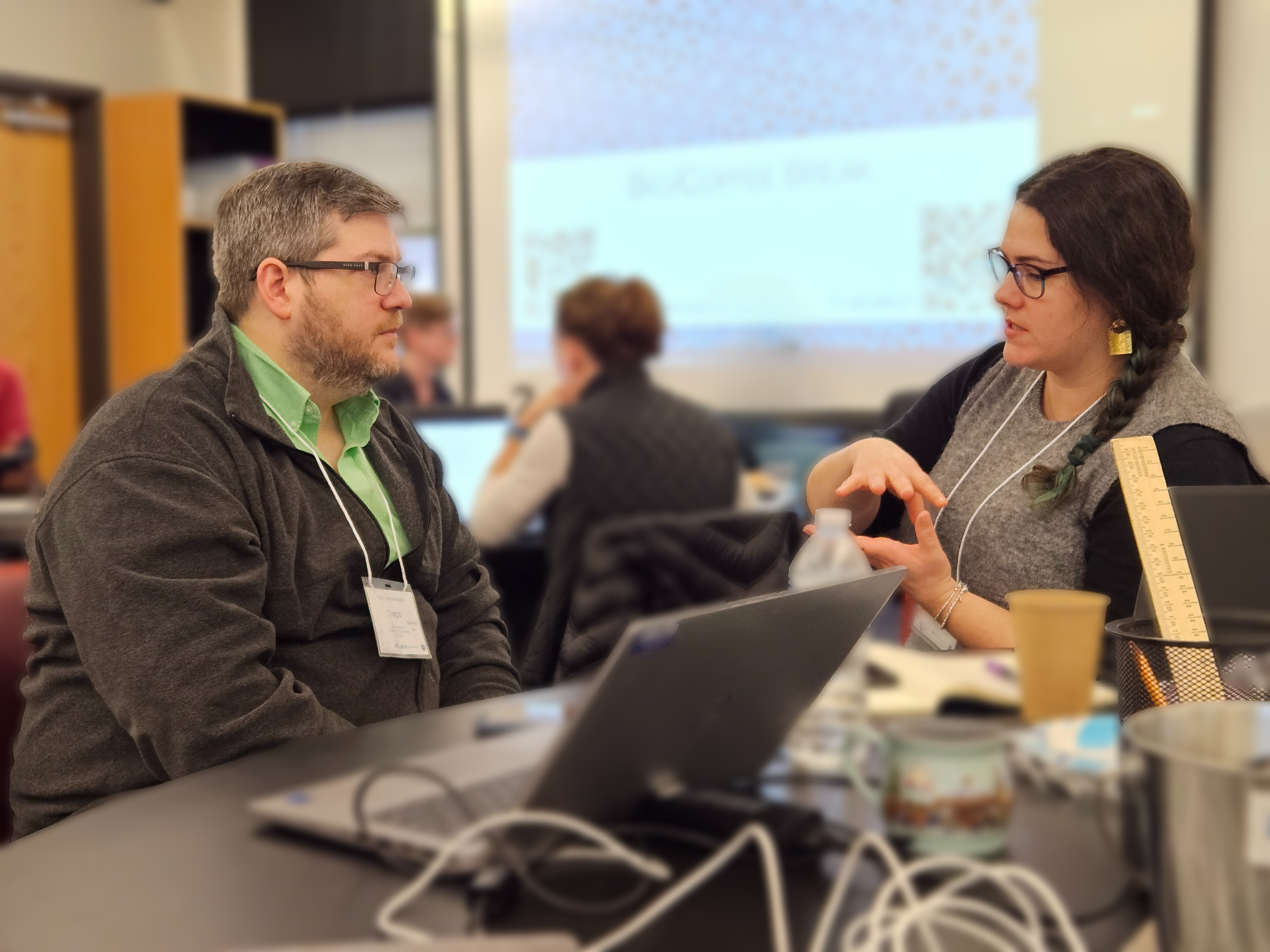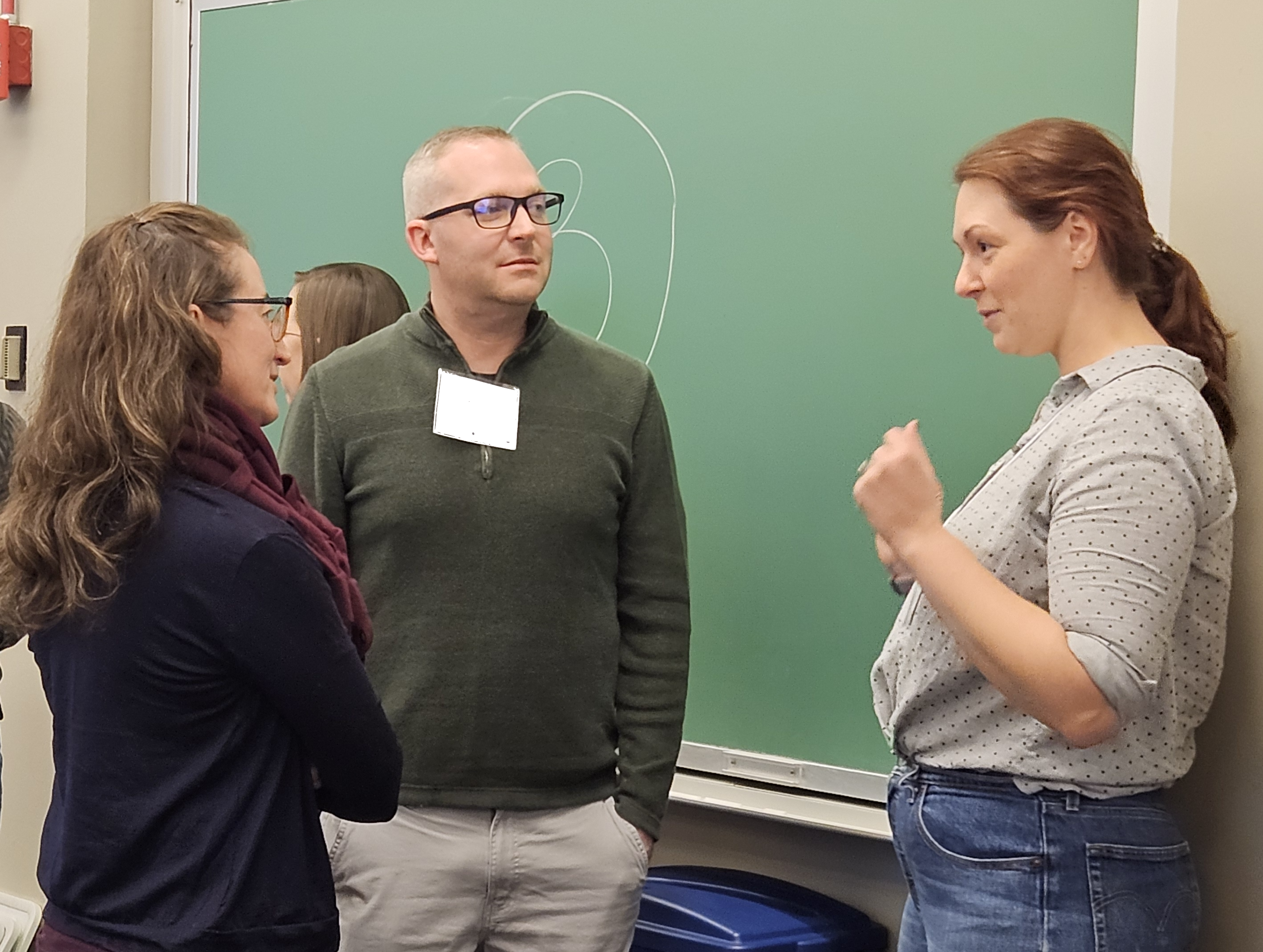The PEER Model
The PEER Model
What is PEER?
At PEER Field Schools, you’ll delve into research project development and best practices, engage with like-minded professionals, and gain invaluable insights into the world of educational research. Our expert facilitators will guide you through hands-on activities and collaborative discussions, helping you shape your project and engage your passion.
PEER will boost your education research skills and push your project forward!
We believe research is:
Responsive
Field schools respond to participant needs
Playful
Researchers play with ideas and data to generate new knowledge
Communicative
Writing and presenting are core parts of research
Collaborative
People do research together, in communities
Who Benefits From the PEER program?
PEER participants come from a wide range of science backgrounds and professions. Participants include:
- Discipline-based education researchers looking to expand their methodological repertoire
- Disciplinary faculty just getting started on the scholarship of teaching and learning
- Education faculty looking to join a research group and access video-based data
- Faculty development experts learning to mentor faculty through scholarship of teaching and learning (SoTL) projects
- Graduate students and postdoctorates who need mentoring and community support for their research projects
- Undergraduate students who attend field schools with their advisors
“I cannot overstate how much I appreciated the focus on the real applications. The theory of research is important, but the focus on doing was truly empowering.”
Is PEER for you?
Our collaborators and hosts at the University of Cologne made a promotional video for their PEER field school.
What does PEER look like?
In a PEER field school, you’ll work in a supportive community to build your skills and your research project along several overlapping development arcs:
Fundamental Skills
Generative writing, having a growth mindset, playing “yes, and”, mentoring students, researching as a parallel process, and iterating
Research Design
Refining research questions, choosing theoretical frameworks, matching data streams to research questions and analysis methods, planning research projects, and building resilient and flexible projects.
Research Communication
Encapsulating your project, developing an elevator pitch, reading research literature, publishing peer-reviewed papers, negotiating authorship, finding collaborators, and giving robust constructive feedback on each other’s projects.
Does PEER sound like a lot?
It is. PEER field schools are intense, experiential, and supportive. You don’t just learn these things abstractly; you actively practice them with your project. You are ready for PEER when you are enthusiastic about stretching your skills, refining your project, and getting energized about doing research.
“My community has grown BY A LOT since being at PEER. There are so many helpful people within my discipline and outside!”
Join the list!
Curious about other possibilities?
Don’t miss out on PEER events.
Join our announcements list to hear about upcoming field schools, virtual gateways, and other PEER events.
Upcoming events
Ready to grow your research skills?
PEER offers in-person and virtual events for emerging education researchers. Just getting started in education research, or curious about what PEER is like? Join us for a 90-minute virtual gateway workshop. Ready for a longer experience? Apply for an upcoming field school.

